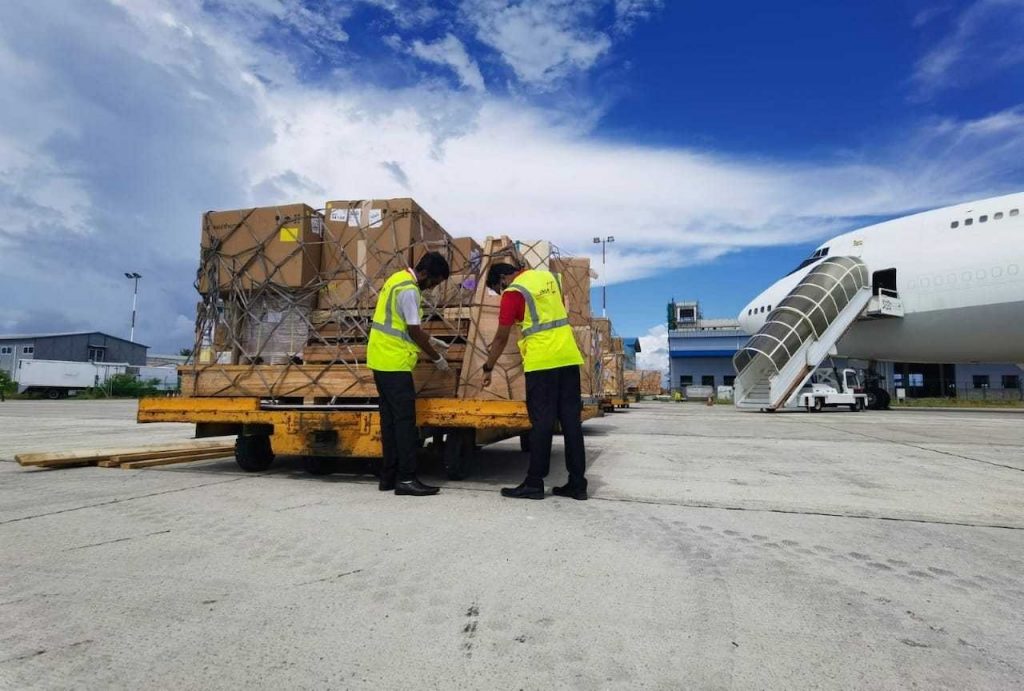Logistics Holds Up Well for Agility as Aviation Crisis Bites
17th August 2020

Emerging markets logistics specialist Agility today reported a net profit of KD 16.2 million, a decrease of 61.3% over the same period in 2019. EBITDA declined by 20.1% to KD 75.8 million, and revenue declined 1.3% to KD 765.1 million. The logistics arm of the global business has held up well through the crisis, with the aviation downturn hitting the company.
Tarek Sultan, Agility Vice Chairman and CEO, said: “We entered 2020 with our business on sound footing, which is one reason that we were able to react quickly to the sweeping impact of the COVID-19 pandemic. We acted immediately to protect employees, customers, and communities, including providing donated logistics support for local governments and NGOs around the world. We also took steps to bring operating expenses and other costs in line with the new environment. If the crisis has demonstrated anything, it is the essential value of logistics and supply chain providers in times of severe disruption.”
Sultan said the economic fallout from the pandemic has had an uneven effect on Agility businesses. “Our contract logistics business and logistics parks have weathered this reasonably well because demand for storage space has been steady or increased, especially as customers have looked to add to safety stock or support pandemic-driven increases in e-commerce sales. In many instances, we are experiencing accelerated adoption of disruptive and emerging technologies related to the COVID-19 pandemic or underlying CSR paradigms. Other Agility businesses, such as aviation and airport operations have been directly impacted by the decline in air travel and traffic and are now pivoting towards the development of pioneering new technologies that will be essential to the re-enablement of global travel.”
Agility Global Integrated Logistics (GIL)
Global Integrated Logistics’ first-half EBITDA was KD 28.8 million, a 1.3% increase from the same period in 2019. This was driven by strong Contract Logistics, Project Logistics, and Air Freight results, as well as a sharp focus on containing costs.
GIL’s H1 net revenue was KD 135.8 million, in line with last year’s performance. Net revenue increased in Contract Logistics, Project Logistics, and Air Freight, but fell in Ocean Freight and Fairs & Events. GIL gross revenue was KD 570.6 million, a 2.5% increase from same period in 2019.
Volumes were down in both Air Freight and Ocean Freight in the first half of this year, by 23.6% in Air Freight (tonnage) and 14.8% in Ocean Freight (TEUs), due to COVID-19 impact on demand due to lockdowns, production stoppages, and economic contraction across industries and geographies. However, H1 saw higher yields in Air Freight due to capacity shortages and a spike in demand for urgent shipments of PPE and other medical equipment. First-half Air Freight net revenue increased 17% vs. the same period a year earlier, while Ocean Freight net revenue decreased 16% vs. same period last year.
Contract Logistics achieved healthy growth (7% net revenue growth), mainly in the MEA Region (Kuwait, Saudi Arabia) as the result of the addition of new facilities and increased operating efficiencies. Project Logistics showed strong performance across all regions with 25% net revenue increase, driven by new capital projects and positive volume development from existing customers. Fairs & Events net revenue fell 46% with the cancellation and postponement of key events.
Starting in Q1, GIL introduced a range of both temporary and permanent cost reduction measures in response to the pandemic. The measures are intended to ensure continued strength of profitability performance during a period of falling and volatile global trade activity. GIL continues to focus on operational productivity as well as customer solutions to respond to the changing market environment.

